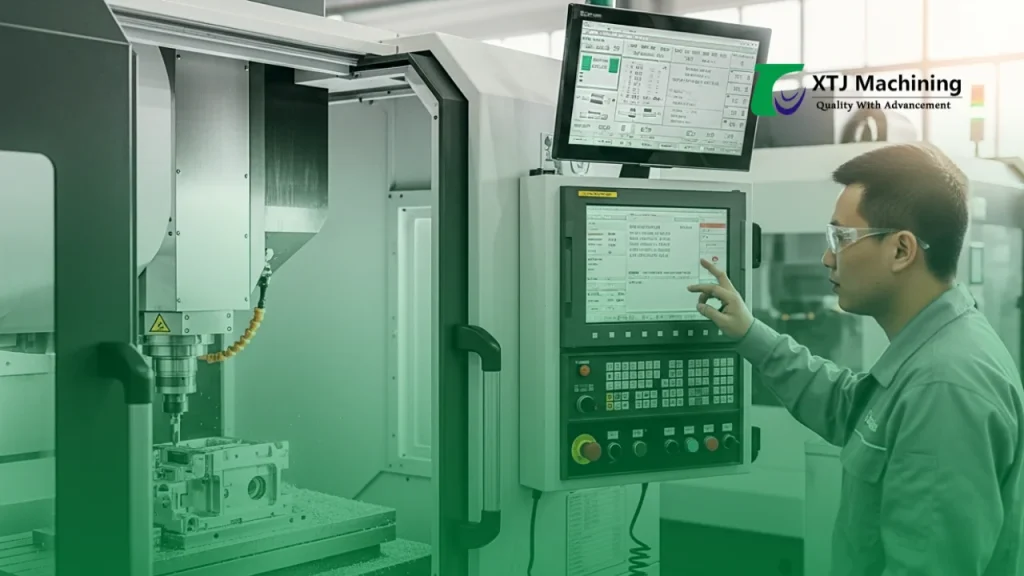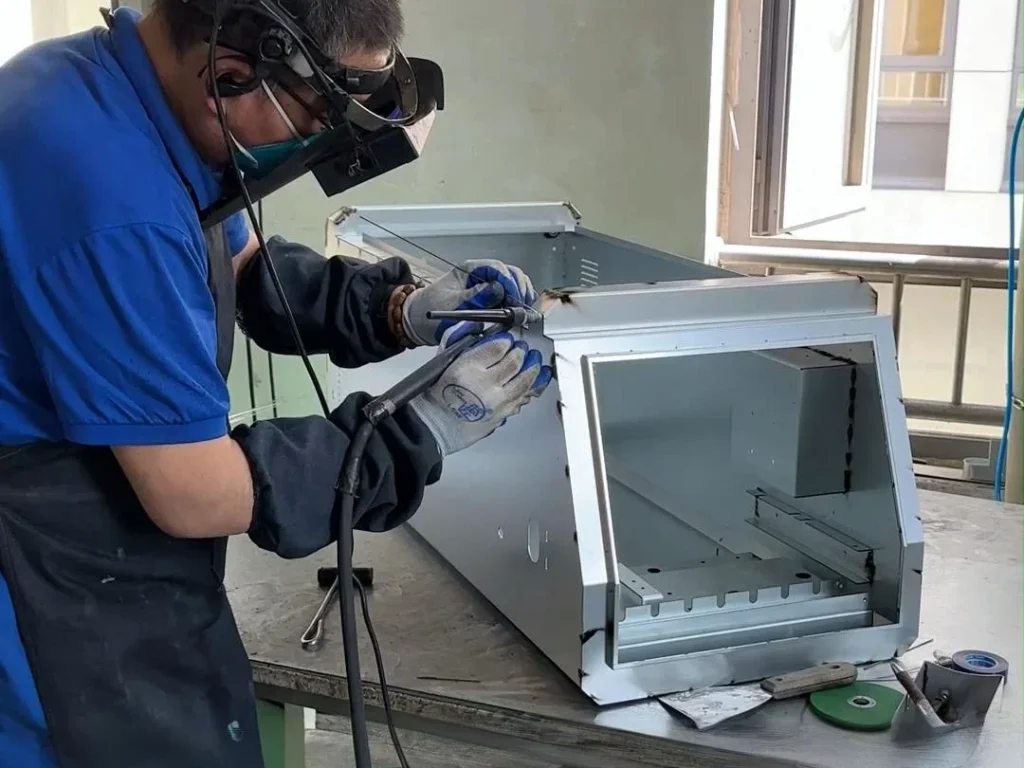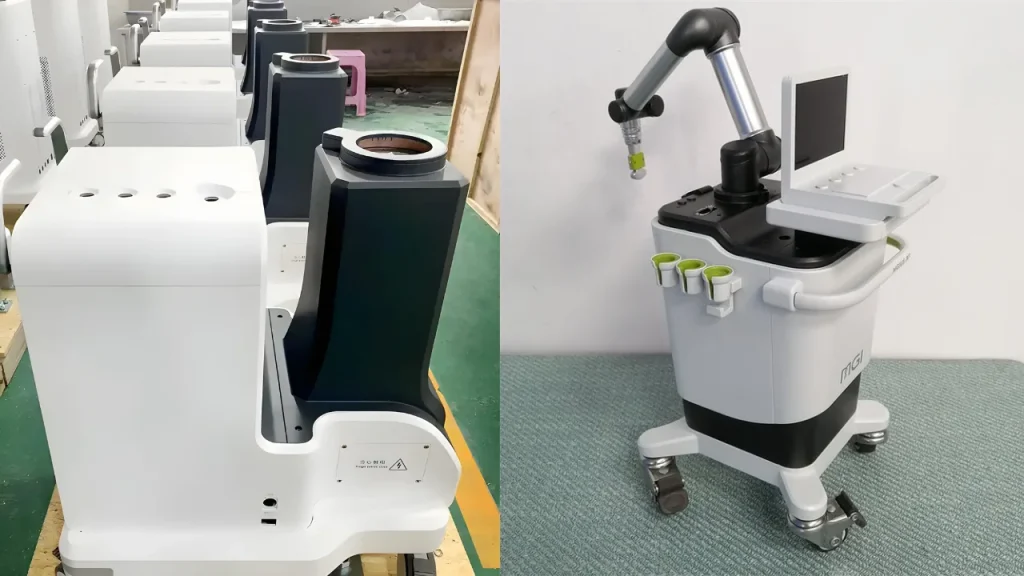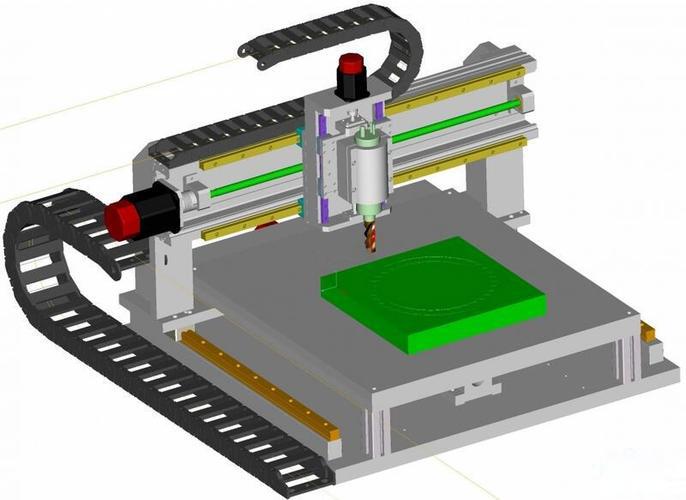Wenn Präzision und Zuverlässigkeit für Ihre medizinischen Geräteprojekte wichtig sind, dann CNC-gefertigte Gehäuse für medizinische Anwendungen sind unverzichtbar. Diese maßgeschneiderten Gehäuse bieten die engen Toleranzen, Biokompatibilität und regulatorische Konformität, die Ihre Produkte verlangen – weit über das hinaus, was traditionelle Methoden liefern können. Ob Sie Prototypen erstellen oder die Produktion skalieren, das Verständnis, wie fortschrittliche CNC-Bearbeitung die Sicherheit und Leistung von Geräten verbessert, ist entscheidend. Lassen Sie uns erkunden, warum die Investition in fachmännisch gefertigte, medizinische Gehäuse ein Wendepunkt für Ihren nächsten Durchbruch ist.

Warum CNC-Bearbeitung für medizinische Gehäuse herausragt
Die CNC-Bearbeitung zeichnet sich als die führende Methode zur Herstellung medizinischer Gehäuse aus, dank ihrer unvergleichlichen Präzision und Zuverlässigkeit. Medizinische Geräte erfordern Gehäuse mit engen Toleranzen, um Passgenauigkeit, Funktion und Sicherheit zu gewährleisten. Die CNC-Technologie liefert eine konstante Maßgenauigkeit, die für die Unterbringung sensibler Elektronik und Instrumente entscheidend ist.
Präzision und enge Toleranzen
Mit CNC-Bearbeitung erreichen Hersteller Präzision im Mikrometerbereich, die für komplexe medizinische Gehäuse unerlässlich ist. Diese Präzision minimiert Montageprobleme und verbessert die Geräteleistung, wobei strenge medizinische Standards eingehalten werden, die maßgeschneiderte medizinische Gehäuse erfordern.
Materialvielfalt
Die CNC-Bearbeitung unterstützt eine breite Palette von Materialien, die in medizinischen Gehäusen verwendet werden – von medizinischem Titan und präzisen Aluminiumgehäusen bis hin zu biokompatiblen Polymeren. Diese Vielseitigkeit ermöglicht es Designern, Materialien basierend auf Biokompatibilität, Festigkeit, Gewicht und Sterilisationsanforderungen auszuwählen und so die beste Passform für jede medizinische Anwendung zu gewährleisten.
Schnelles Prototyping und Skalierbarkeit
Die Fähigkeit, schnell Prototypen zu entwickeln, ist ein großer Vorteil der CNC-Bearbeitung. Designer können schnell iterieren und Gehäusedesigns testen, bevor sie die Produktion hochfahren. Dies macht CNC ideal für die medizinische Fertigung in kleinen Stückzahlen und kundenspezifische Lösungen, beschleunigt die Markteinführung und gewährleistet gleichzeitig hohe Qualität. Erfahren Sie mehr über die Vorteile des schnellen Prototypings hier.
Kosten-effizienz
Die CNC-Bearbeitung verbindet Präzision mit Kosteneffizienz, insbesondere bei kleinen bis mittleren Produktionsserien, die im medizinischen Bereich üblich sind. Dieser Prozess reduziert Materialabfall und senkt die Arbeitskosten im Vergleich zu traditionellen Fertigungsmethoden, was sie zu einer wirtschaftlichen Wahl für medizinische Gehäuse macht, ohne Kompromisse bei der Qualität einzugehen.
Hygiene und Haltbarkeit
Medizinische Gehäuse müssen strenge Sterilisationsverfahren und den täglichen Gebrauch in klinischen Umgebungen aushalten. CNC-gefertigte Teile bieten glatte, leicht zu reinigende Oberflächen und langlebige Beschichtungen, die korrosions- und verschleißbeständig sind. Dies gewährleistet eine lange Lebensdauer und die Einhaltung von Hygienestandards – entscheidend für sterilisierbare Gehäuse chirurgischer Instrumente und Abdeckungen diagnostischer Geräte.
Insgesamt bietet die CNC-Bearbeitung eine ideale Kombination aus Präzision, Materialflexibilität, Geschwindigkeit, Kosteneinsparungen und Haltbarkeit, die den strengen Anforderungen medizinischer Gerätegehäuse gerecht wird.
Vergleich mit anderen Methoden
Während 3D-Druck für ultrakleine Prototypenchargen geeignet ist, überzeugt CNC bei Endprodukten und der Herstellung von Gehäusen mit höherer Präzision, insbesondere bei Metallteilen. Für die Großserienfertigung kann Spritzguss kosteneffizienter sein, doch die Flexibilität der CNC macht sie zur besten Wahl für kundenspezifische medizinische Gehäuse.
Wesentliche Materialien für CNC-medizinische Gehäuse Wenn es um CNC-gefräste Gehäuse für medizinische Anwendungen geht, spielt die Materialwahl eine große Rolle für Leistung, Sicherheit und Compliance. Hier ist ein kurzer Überblick über die wichtigsten Materialien, mit denen wir bei XTJ Precision Mfg arbeiten.
Wenn es um CNC-gefräste Gehäuse für medizinische Anwendungen geht, spielt die Materialwahl eine große Rolle für Leistung, Sicherheit und Compliance. Hier ist ein kurzer Überblick über die wichtigsten Materialien, mit denen wir bei XTJ Precision Mfg arbeiten.
Metalle
Metalle wie Aluminium, Titan und Edelstahl sind bevorzugte Optionen für Gehäuse von Medizinprodukten. Aluminium ist aufgrund seines geringen Gewichts und seiner hervorragenden Korrosionsbeständigkeit beliebt. Titan zeichnet sich durch Biokompatibilität und Festigkeit aus, ideal für chirurgische Instrumente und implantierbare Geräte. Edelstahl bietet Haltbarkeit und ist leicht zu sterilisieren, was ihn perfekt für robuste medizinische Umgebungen macht.
Polymere
Medizinische Polymere sind ideal, wenn ein Gleichgewicht zwischen Gewicht, Flexibilität und Kosten erforderlich ist. Materialien wie Polycarbonat und PEEK bieten chemische Beständigkeit und können sterilisiert werden, ohne Form oder Festigkeit zu verlieren. Polymere eignen sich auch gut für maßgeschneiderte Gehäuse von Medizinprodukten, bei denen Isoliereigenschaften oder komplexe Formen wichtig sind.
Hybride und Oberflächenbehandlungen
Manchmal bietet eine Kombination aus Metallen und Polymeren die besten Ergebnisse – Metallgehäuse mit Polymer-Einsätzen oder Beschichtungen für zusätzlichen Schutz oder Isolierung. Oberflächenbehandlungen wie Eloxieren, Elektropolieren oder spezielle Beschichtungen erhöhen die Haltbarkeit, verbessern die Hygiene und bieten sogar EMI-Abschirmung für empfindliche Medizinelektronik.
XTJ Tipp Gehäusebeispiel
Bei XTJ Precision Mfg haben wir kürzlich ein maßgeschneidertes präzises Aluminiumgehäuse für ein Diagnosegerät gefertigt, das sowohl Wärmeableitung als auch Biokompatibilität erfordert. Durch die Kombination von eloxiertem Aluminium mit strategisch platzierten Polymerdichtungen gewährleisteten wir ein leichtes, langlebiges und sterilisierbares Gehäuse, das strenge medizinische Standards erfüllt.
Für weitere Details zu maßgeschneiderten Metallgehäusen und Oberflächenbehandlungen, die ideal für verschiedene Anwendungen sind, sehen Sie sich unsere Leitfäden an zu erschwingliche maßgeschneiderte Metallgehäuse freischalten und Polierte Oberflächenbehandlung – der Standard für verschiedene Anwendungen.
Praxisanwendungen von CNC-gefrästen Gehäusen für medizinische Zwecke
CNC-gefräste Gehäuse für medizinische Anwendungen erfüllen die anspruchsvollen Anforderungen verschiedener Gesundheitsgeräte. So zeigen sie sich in der Praxis:

Diagnosegeräte
Präzise Aluminiumgehäuse sind entscheidend für die Unterbringung empfindlicher Diagnosewerkzeuge. Diese Gehäuse bieten EMI-Abschirmung für Medizinelektronik, schützen Geräte vor Störungen und gewährleisten genaue Messwerte. Ihre wärmeableitenden Eigenschaften helfen auch, die Leistung der Geräte bei längerem Gebrauch aufrechtzuerhalten.
Chirurgische und Implantatgeräte
Sterilisierbare Gehäuse für chirurgische Instrumente und medizinische Titan-Gehäuse unterstützen strenge Hygiene- und Biokompatibilitätsstandards. CNC-Bearbeitung ermöglicht enge Toleranzen, die für Implantatgeräte notwendig sind, und garantiert Sicherheit und Zuverlässigkeit im menschlichen Körper.
Tragbare und Wearable-Technologie
Maßgeschneiderte Gehäuse für tragbare Medizintechnik müssen leicht, langlebig und komfortabel sein. CNC-Bearbeitung erlaubt eine Kleinserienfertigung mit schneller Umsetzung, ideal für aufkommende tragbare Gesundheitsmonitore und Tracking-Geräte, die Haltbarkeit und Präzision erfordern.
Aufkommende Trends
Mit der Weiterentwicklung von Telemedizin und Fernüberwachung wächst auch der Bedarf an intelligenten, kompakten Gehäusen, die empfindliche Elektronik schützen und gleichzeitig leicht zu reinigen und zu warten sind. Innovationen umfassen Hybridmaterialdesigns und fortschrittliche Oberflächenbehandlungen, die auf langfristige Haltbarkeit ausgelegt sind.
XTJ Showcase Kundenerfolg
Bei XTJ Precision Mfg haben wir deutschen Medizinunternehmen geholfen, ihre Konzepte zum Leben zu erwecken – von FDA-zugelassenen CNC-Prototypen bis hin zu vollständig konformen Produktionsteilen. Unsere Kunden profitieren von unserem nach ISO 13485 zertifizierten Fertigungsprozess und Anpassungsoptionen, die sicherstellen, dass jedes Gehäuse strenge medizinische Standards erfüllt.
Regelungen für medizinische Gehäuse navigieren
Die Einhaltung von Vorschriften wie FDA 21 CFR Part 820 und ISO 13485 ist entscheidend bei der Herstellung von CNC-gefertigten Gehäusen für medizinische Anwendungen. Diese Standards stellen sicher, dass Qualitätsmanagementsysteme vorhanden sind, um sichere und zuverlässige Gehäuse für medizinische Geräte konstant zu produzieren. Die Erfüllung dieser Anforderungen hilft, Risiken zu minimieren und Produkte marktreif zu machen.
Für Unternehmen, die auf internationale Märkte ausgerichtet sind, ist das Verständnis der EU-MDR (Medizinprodukteverordnung) und RoHS (Beschränkung gefährlicher Stoffe) ebenso wichtig. Diese Vorschriften konzentrieren sich auf Sicherheit, Umweltverträglichkeit und die Beschränkung schädlicher Materialien in Komponenten medizinischer Geräte.
Bei XTJ Precision Mfg legen wir von Anfang an Wert auf die Einhaltung gesetzlicher Vorschriften. Unsere Prozesse sind auf diese Standards ausgerichtet, um Kunden vor kostspieligen Verzögerungen und Haftungsrisiken zu schützen. Wir führen eine gründliche Risikobewertung, Dokumentenkontrolle und Rückverfolgbarkeit für jedes individuell gefertigte medizinische Gehäuse durch. Dieser Compliance-Vorteil gibt den Kunden die Sicherheit, dass ihre CNC-gefertigten Gehäuse den Branchen- und Regierungsanforderungen entsprechen, und schützt sowohl den Endbenutzer als auch Ihre Investition.
Best Practices für das Design von CNC-gefertigten Gehäusen für medizinische Anwendungen
Wenn es um die Gestaltung von CNC-gefertigten Gehäusen für medizinische Anwendungen geht, ist ein reibungsloser und effektiver Ablauf entscheidend. So gehen wir vor:

CAD-Integration
Der Einsatz fortschrittlicher CAD-Software ermöglicht es uns, präzise, detaillierte Modelle für individuelle medizinische Gehäuse zu erstellen. Dieser Schritt stellt sicher, dass die Designs den genauen Spezifikationen vor der Fertigung entsprechen, Fehler reduziert und die Produktion beschleunigt wird. Er hilft uns, komplexe Geometrien und enge Toleranzen mühelos zu bewältigen.
Feature-Optimierung
Wir konzentrieren uns auf die Optimierung von Merkmalen wie Wandstärke, Belüftungsöffnungen und Befestigungspunkten, um die folgenden Punkte zu verbessern:
- Festigkeit und Haltbarkeit ohne unnötiges Gewicht hinzuzufügen
- Wärmeableitung bei Geräten wie Diagnostika
- EMI-Abschirmung für medizinische Elektronik
- Einfache Montage und Wartung
Dies führt zu funktionalen, effizienten Gehäusen, die medizinischen Standards entsprechen.
Testprotokolle
Gründliche Tests sind unverzichtbar. Prototypen durchlaufen:
- Passform- und Toleranzprüfungen
- Mechanische Belastungstests
- Biokompatibilitäts- und Sterilisationsvalidierung
Dies stellt sicher, dass die CNC-Gehäuse zuverlässig in realen medizinischen Umgebungen funktionieren und den Anforderungen von FDA und ISO entsprechen.
Visualisierungsdiagramm für Designablauf
Wir verwenden klare Flussdiagramme, um den Designprozess abzubilden – vom ersten Konzept und CAD-Modellierung bis hin zu Prototyping, Tests und Endproduktion. Dieses visuelle Hilfsmittel sorgt dafür, dass alle Teams auf dem gleichen Stand sind, Fehler minimiert werden und die Lieferzeiten verkürzt werden.
Durch die Befolgung dieser bewährten Designpraktiken liefert XTJ Precision Manufacturing maßgeschneiderte, ISO 13485-konforme Bearbeitungsergebnisse, die für kritische medizinische Anwendungen bereit sind.
Der Unterschied bei XTJ Precision Mfg
Bei XTJ Precision Mfg sind wir auf CNC-gefertigte Gehäuse für medizinische Anwendungen spezialisiert, die den anspruchsvollen Standards der Medizintechnik entsprechen. Unser Team kombiniert jahrelange Erfahrung mit modernsten CNC-Bearbeitungstechnologien, um medizinische Gerätegehäuse zu liefern, die perfekt auf die Präzision und Qualitätsanforderungen Ihres Projekts abgestimmt sind.

Unsere Fähigkeiten
- Präzisionsbearbeitung mit engen Toleranzen für zuverlässigen Sitz und Funktion
- Materialexpertise einschließlich medizinischer Titanlegierungen, biokompatibler Polymere und präziser Aluminiumgehäuse
- Schnelle Prototypenentwicklung und skalierbare Produktion zur Unterstützung sowohl von Kleinserien-CNC-Medizinfertigung als auch größeren Produktionsläufen
- Erweiterte Funktionen wie EMI-Abschirmungen und hitzebeständige Beschichtungen, die speziell für Healthcare-Elektronik entwickelt wurden
Anpassungsprozess
Wir verstehen, dass jedes medizinische Gerät einzigartig ist. Deshalb arbeiten wir eng mit Ihnen zusammen, vom Design-Review und CAD-Integration bis hin zum abschließenden Test. Ob steriliserbare Gehäuse für chirurgische Instrumente oder Gehäuse für tragbare Geräte, wir passen jedes Detail an, um genau das zu liefern, was Ihre Anwendung erfordert.
Nachhaltigkeitsfokus
XTJ Precision Mfg verpflichtet sich zu nachhaltigen Fertigungspraktiken. Wir optimieren den Materialeinsatz und setzen energieeffiziente Bearbeitungsprozesse ein, um Abfall und Umweltbelastung zu reduzieren. Unser Ziel ist es, hochwertige medizinische CNC-Gehäuse anzubieten, ohne die Nachhaltigkeit zu beeinträchtigen.




